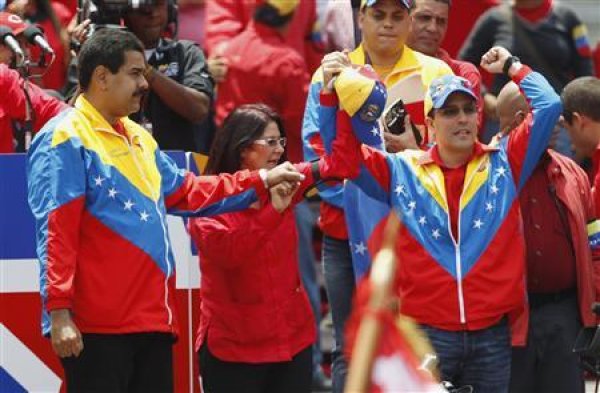Venezuela’s foreign minister invited Friday the newly appointed European Union special advisor for the crisis in the Caribbean country, amid both government and opposition looking for a solution through dialogue.
BILATERAL RELATIONS HAVE BEEN DISCUSSED
Jorge Arreaza said on Twitter that he talked about a process that is being developed in Oslo, Norway government and opposition was held two mediation meetings with Enrique Iglesias over phone call and invited him to Venezuela.
According to a delegation of opposition leader Juan Guaido, no agreement was reached in these meetings yet.

“The parties have shown their will to move forward in the search of a concerted and constitutional solution for the country,” Arreaza posted a statement submitted by the Norwegian government in social media.
Venezuela has been rocked by protests since January when President Nicolas Maduro was sworn in for a second term following a vote boycotted by the opposition. Tensions escalated days later when Juan Guaido declared himself acting president, a move supported by the US and many European and Latin American countries. Russia, Turkey, China, Iran, Bolivia, and Mexico have thrown their weight behind Maduro.
OTHER RECENT DEVELOPMENTS IN THE CONTINENT
On Tuesday, Germany held the first edition of “Latin American and Caribbean initiative”, a conference which aimed to strengthen diplomatic and trade ties with the region. More than 20 foreign ministers from Latin America and the Caribbean attended the conference in Berlin, while Venezuela was absent.
The Argentinian Foreign Minister, Jorge Faurie met with his counterpart Heiko Maas, to discuss the ongoing crisis in Venezuela during the conference in Berlin.

The Lima Group, a bloc comprising 14 Latin American nations focused on finding a resolution to Venezuela’s long-standing crisis, also decided in Berlin to schedule its next summit on June 6 in Guatemala.
On May 20, Mexico and UN Economic Commission for Latin America and the Caribbean (ECLAC) presented a Comprehensive Development Plan for Southern Mexico and the Northern Triangle of Central America (PDI). The plan aims to address unemployment and violence in the region, which are the primary causes of migration.
ECLAC also recommended reorienting the subsidies towards “the promotion of investment on essential social matters”, through a “renewed macroeconomic policy” that will boost employment.













